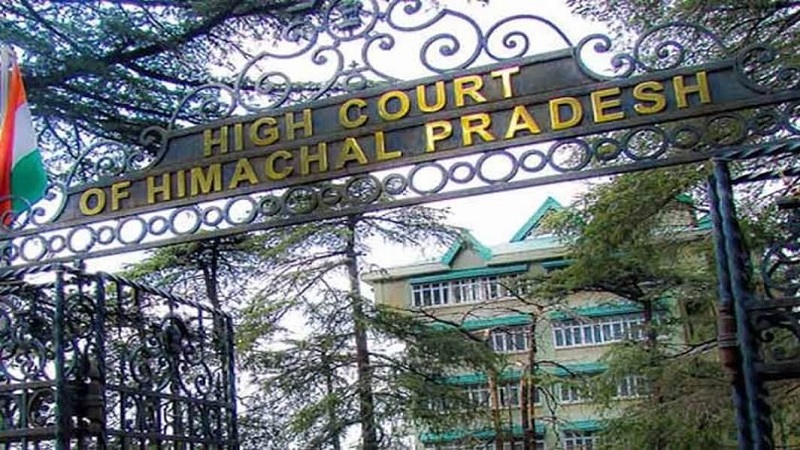 Image Courtesy:indialegallive.com
Image Courtesy:indialegallive.com
The High Court of Himachal Pradesh granted bail to a 20-year-old in a case where he has been accused of raping a minor girl aged 16 years. At the outset, naturally, it does not sound like an ideal decision. While a reading of the order, and the facts and circumstances could validate the decision made by the court, it is the detailed bail conditions that are worth a mention.
The accused has been charged under Sections 363 (kidnapping), 366A (procuration of minor girl), 376 (rape) of the Indian Penal Code, 1860 (IPC), Section 4 (Punishment for penetrative sexual assault) of the Protection of Children from Sexual Offices, Act, 2012 (POCSO Act) and Section 3 (Punishments for offences of atrocities) of the SC & ST Act, by Theog Police Station in Shimla, Himachal Pradesh.
The parents of the minor girl alleged in their complaint that the accused allured the girl into staying with him and committed rape on her. During the investigation, the minor girl is known to have informed the police that she knew the accused for 3-4 months and was in touch with him through Facebook as well as phone. She also told the police that they indulged in sexual intercourse before and also after having “participated in a marriage”.
The court was informed that the accused did not have any criminal history and the counsel for the accused contended that incarceration before the proof of guilt would cause grave injustice to the petitioner and his family.
While making its decision, the court held, “Pre-trial incarceration needs justification depending upon the offense’s heinous nature, terms of the sentence prescribed in the statute for such a crime, probability of the accused fleeing from justice, hampering the investigation, criminal history of the accused, and doing away with the victim(s) and witnesses. The Court is under an obligation to maintain a balance between all stakeholders and safeguard the interests of the victim, accused, society, and State.”
The court, basis the facts and circumstances, as revealed during the course of investigation held that “Although, she (minor girl) could not have consented for sexual intercourse as well as leaving custody of her custodian but for deciding the bail, her conduct is sufficient to grant bail to the petitioner.”
While deciding to grant bail, the court held, “An analysis of entire evidence does not justify further incarceration of the accused, nor is going to achieve any significant purpose. Without commenting on the merits of the case, the stage of the investigation and the period of incarceration already undergone would make out a case for bail”.
Bail conditions
The court granted bail subject to furnishing of personal bond of Rs. 10,000 and gave many other alternatives if the same was not possible for the accused, giving option of surety bonds and fixed deposit.
The court even imposed conditions on manner of investigation and directed that the accused shall not be subjected to inhuman treatment:
“The petitioner shall join investigation as and when called by the Investigating Officer or any Superior Officer. Whenever the investigation takes place within the boundaries of the Police Station or the Police Post, then the petitioner shall not be called before 8 AM and shall be let off before 5 PM. The petitioner shall not be subjected to third-degree methods, indecent language, inhuman treatment, etc.
The court even allowed service e of summons as well as warrants over email as well as Whatsapp in addition to standard modes of serving.
The court even directed the accused to refrain from visiting the place of occurrence (of the alleged crime) while on bail. Further, in a bid towards victim protection, the court specifically gave directions to the accused that he “shall neither stare, stalk, make any gestures, remarks, call, contact, message the victim, either physically, or through phone call or any other social media, nor roam around the victim’s home. The petitioner shall not contact the victim.”
The court even asked the accused to surrender any firearms if he is in possession of any. Further, the court informed the accused of his rights by stating that if “the petitioner finds the bail condition(s) as violating fundamental, human, or other rights, or causing difficulty due to any situation, then for modification of such term(s), the petitioner may file a reasoned application before this Court, and after taking cognizance, even before the Court taking cognizance or the trial Court, as the case may be, and such Court shall also be competent to modify or delete any condition”.
The court directed the SHO of the police station to send a copy of this order to the complainant and victim and informed the victim that in case she notices stalking or any violation of this order, she may either inform the SHO of the concerned Police Station or write to the Trial Court or even the high court.
The accused was granted bail but at the same time, through a much comprehensive set of bail conditions, the court has tried to safeguard the rights of not just the victim but of the accused as well; a step towards improved criminal jurisprudence indeed.
The court order may be read here.
Related:
Kathua rape case: HC rejects parole plea of key conspirator
Disclosing suspect information to media violates Article 21: MP HC
Madras HC grants POCSO accused bail if he marries survivor!